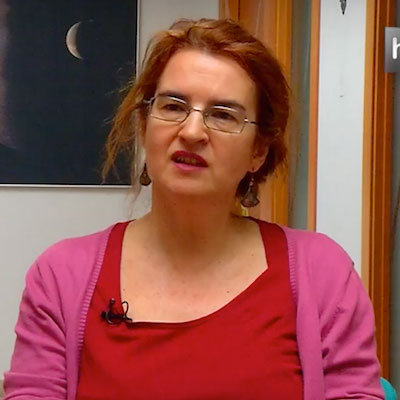Core Team

- lourdes@iaa.es
-
Dpto. Astronomía Extragaláctica
Instituto Astrofísica Andalucía
Glorieta de la Astronomía s/n
18008 Granada
Spain
At a certain point in my career, I decided to focus on making my articles reproducible, following the Scientific Method, despite the challenges. Since for SKA, the volume and complexity of the data will scale the problem, I incorporated a strong Computational Science component into my research. Alongside my scientific work, and lacking standards to access radio data in the Virtual Observatory, we defined the first VO-compliant radio data model (IRAM-30m antenna). From 2007 to 2010, I led the Excellence Project “e-CA: e-Science in Andalusia,” the first bottom-up initiative in Spain, reaching over 140 groups. This pioneering project emerged when OS had not yet been integrated into European policies, which began by 2017, with the DORA declaration dating to 2012. Thus, I was invited to present eCA at the 2009 UK e-Science meeting, and to be one of four invited speakers for the 10th anniversary of the UK e-Science programme at the University of Oxford.
I soon became aware of a new challenge: providing the scientific community with transparent access to methodology. In the Wf4ever FP9 project (2010) I coordinated the Astronomy work package, and we developed the concept of Research Object, encompassing data, tools, and documentation to make research reproducible. The European Union considered it among “the most successful EU projects, with significant impact on the scientific community”.
Achieving OS requires both tools and suitable research metrics, which many of my invited lectures critically review, often skewed towards relevant but incomplete bibliographic indicators, missing paper reproducibility. These concerns were highlighted during my tenure as Chair of the ERC Starting Grants Panel in 2013. I was later invited to present a review at the ERC headquarters in Brussels, addressing evaluation policies and grant allocation. Subsequently, initiatives like the DORA Declaration, and CoARA since 2022 emphasise the importance of recognising diverse career paths.
Participating in SKA offered a clear opportunity to improve how we do science: adopting OS policies in a project of this scale, the world’s largest public data generator, could have a global impact. Thus, in 2018, I proposed to SKA a session at the EuroScience Open Forum titled “Is the current measure of excellence perverting science? A data deluge is coming; it is time to act,” where I served as both organiser and panelist. These ideas, which I pioneered, were later adopted by the SKA organisation as foundational principles, marking a turning point. In 2020, I was invited to coordinate the incorporation of OS into the SKAO Construction proposal, give a lecture at the 75th UN General Assembly for my role in promoting SKA as a reference in OS and inclusion, and speak in 2021 for the SKAO Speaker Series on “Open Science for Sustainability and Inclusiveness: the SKAO Role Model.” The HI-FRIENDS team I coordinated was the only awarded the SKAO Gold Medal for Reproducibility in the SKA Data Challenge 2 (2021). In 2023, we organised the 1st SKA Open Science School.
,